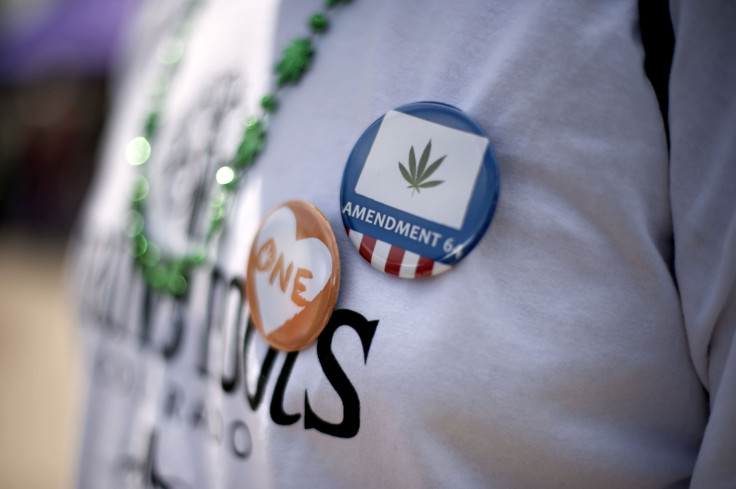Marijuana Reform: Voters Are Leading The Charge, Congress Should Follow Suit

The national political winds are blowing in one direction when it comes to cannabis, and it’s time for our Congress as a whole to finally address an issue that has languished on Capitol Hill for years.
While the 2018 midterms delivered mixed results for Republicans and Democrats vying for a place in the 116th U.S. Congress, marijuana saw victories across the country, echoing the national support of Americans in favor of policy reform.
Michigan is now the 10th state to have legalized adult-use cannabis, which means an estimated 80 million Americans live in a state or jurisdiction where marijuana is legal for adults. Meanwhile, Missouri and Utah voters legalized medical marijuana. A tally by the National Conference of State Legislatures shows 33 states (plus Washington D.C., Puerto Rico, and Guam) have comprehensive medical programs, and a total of 46 states have legalized some form of cannabis (the outliers are Idaho, Kansas, Nebraska, and South Dakota).
The vast majority of Americans live in states that have legalized some form of cannabis, yet we’re all under the umbrella of federal prohibition with marijuana classified as a Schedule I substance.
Political observers have pointed out that advocates push for reform on the state level — at the ballot box or by the legislature — precisely because of the federal government’s persistent refusal to consider marijuana reform. That lack of action in Washington has pushed advocates to take matters into their own hands, and they’re winning more often than not.
It’s time our elected officials wake up to the new politics of marijuana. The midterms showed what national polls already indicated: An overwhelming majority of Americans want federal criminalization of cannabis addressed. A Gallup poll conducted in October 2018 revealed that a record-breaking 66 percent of Americans backed marijuana legalization. Gallup pollsters noted that support transcended party lines, with 75 percent of Democrats, 71 percent of independents, and 53 percent of Republicans in favor. The results are even more stark when it comes to medical use. A 2018 Quinnipiac national poll showed 93 percent of Americans backed medical marijuana legalization. Let me repeat that: 93 percent.
Who says Americans can’t come together?
The success of legalization initiatives in the heartland proves the pro-cannabis populace can’t be discounted as liberal coastal elites. Support spans the generational divide as well. According to the latest Pew poll, majorities of millennials (74 percent), Gen Xers (63 percent), and baby boomers (54 percent) favor legalization.
Even a poll taken in January 2018 by Smart Approaches to Marijuana (SAM), a prominent prohibitionist group, showed just 16 percent of Americans favored keeping cannabis illegal at the federal level.
Polling has consistently shown that support for cannabis policy reform is at record levels and popular with voters across demographics and party lines — and now we’ve got the votes proving the American people want federal reform. Voters support legalization because they’ve seen it work.
Remember those dire predictions that legalization would cause spikes in drug abuse, addiction, teen use, traffic fatalities, and crime? Public policy analysis shows this hasn’t come true. On the contrary, states with legal cannabis programs have seen reductions in violent crime and increased law enforcement effectiveness since enacting reforms, no significant change in traffic deaths and no increase in teen use.
The legal cannabis industry is also driving positive economic growth across the nation. According to market research firm New Frontier Data, legalizing marijuana nationwide would create at least $105.6 billion in federal tax revenue and more than a million new jobs across the United States in the next decade.
So where are our elected federal officials on this issue? Why does the use and possession of cannabis for any purpose remain illegal under federal law, when the overwhelming majority of Americans want to change the status quo?
Many U.S. politicians continue to sidestep the debate or even actively oppose reform efforts, as we saw in the past two years with dozens of cannabis-related bills that failed to advance to a floor vote. Elected leaders across the political spectrum stand to gain a great deal by simply amplifying the will of the public and pushing for floor votes on common-sense cannabis reform, such as lifting barriers to research and permitting states’ rights to be the guiding principle.
Democrats, Republicans and independents in Congress have every incentive to embrace the new politics of marijuana immediately, because the first movers on this historic issue will reap immense political benefits for decades to come.
Aaron Smith is co-founder and executive director of the National Cannabis Industry Association (NCIA), the largest trade association representing legal cannabis businesses in the U.S.
© Copyright IBTimes 2025. All rights reserved.





















